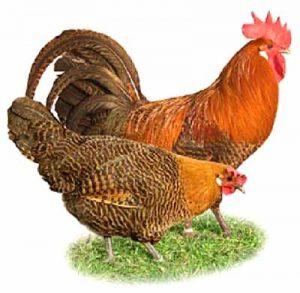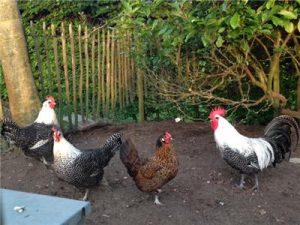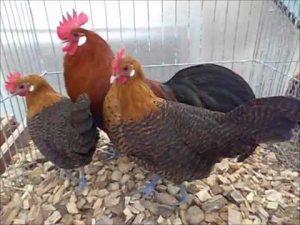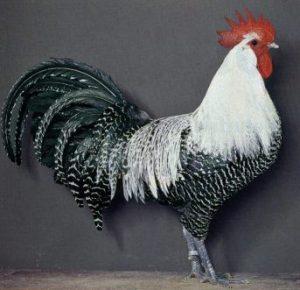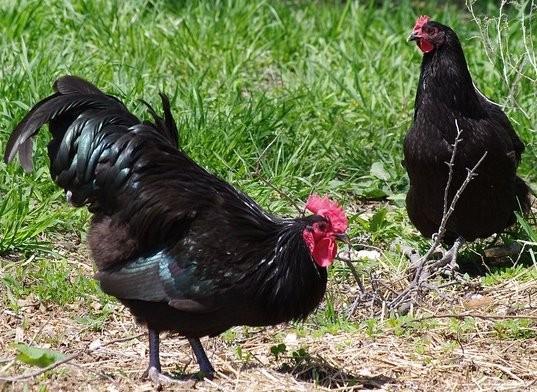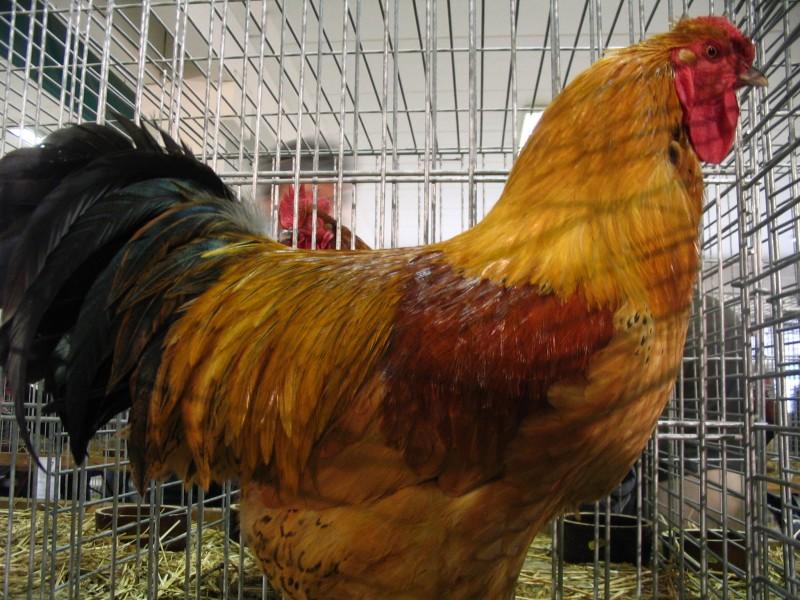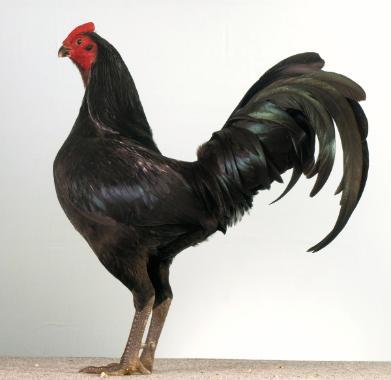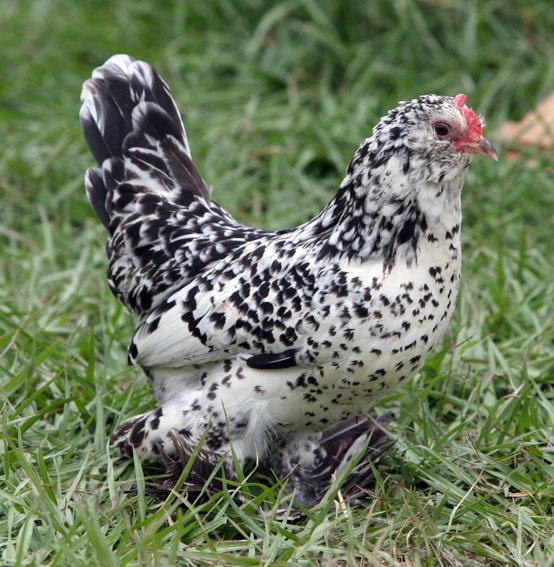Braekel Chicken
The Braekel Chicken is a breed of domesticated fowls that were developed in Belgium. They are not raised for their meat, but for their egg-laying qualities. They are a hardy breed, tolerant to almost all climatic conditions, and are well-resistant to diseases. There is also a bantam variety of the breed that is strictly meant for show.
| Other Names | Brakel, Brakelhoen, Kempische Brakel |
| Nicknames | ‘The Grey White Neck’, ‘The Grey Neck’, ‘The Nun’s Hen’, ‘The Everyday Layer’ |
| Physical Characteristics | Solid colored neck with white ear lobes with tall single tipped comb; a single red comb and wattles present in both roosters and hens; males are brighter than females |
| Plumage | Feathers have straight banding patterns |
| Personality Traits | Extremely active with an even temperament, good foragers, prefer keeping distance from humans, not prone to broodiness |
| Colors | Gold and silver varieties are most common; lesser common colors include lemon, white-barred gold, barred white, white, black and blue |
| Crest | The Dutch Standards defined that the horns of Standard cocks must not exceed 1.75 cm, and for hens it is 1.0 cm. For the Bantams, the maximum length allowed is 1.0 cm. |
| Purposes | Egg production, ornamental purposes, shows |
| Eggs | 180-200/year |
| Lifespan | 10-15 years |
| Weight | Adult Cock: Standard – 2–2.5 kg; Bantam – 800 g (approx.) Adult Hen: Standard – 1.8–2.2 kg; Bantam – 700 g (approx.) |
| Diet | Insects, worms, seeds, greens & vegetables |
| Country of Origin | Belgium |
History and Development
Belgium has a long history of breeding chickens like the well-known Braekel, Campine, and Maline breeds. The Braekel chicken was developed for the first time in Belgium, with its breeding history dating back to as far as 1416. This domestic fowl has been specified as a ‘successful poultry breed’ of Belgium.
However, the offspring of the Kempische Brakel, under the old name ‘Campine’, which evolved differently from the Brakel breed, are still found in the USA, UK, and Australia. There are distinct differences between the Campine and the Brakel. The brakel breed is larger by size, and their cocks are not hen-feathered, unlike the former.
Around a century ago they were also used as table bird. But because their meat had a hint of gaminess, they couldn’t become popular. The population of the Braekel began declining since the Word War II, and at present, it is considered to be a rare breed.
Types
Basically, there had been two distinct sub-types of this breed:
- The larger, heavy weight type that were living in Flanders, the region with rich clay soil,
- The light-weight type found in the Kempen region, which was relatively less fertile.
Vigorous interbreeding occurred between the two types, and eventually the distinction between the two disappeared and resulted in the single type found in the present day.
Egg Production
Braekel hens are average to heavy layers, and are capable of laying 180-200 eggs every year. The color of the egg is white, with each egg approximately weighing between 35 and 40 grams.
Interesting Facts
- The Braekel or Brakel Chicken got its name from the ‘Brakel’ region of Belgium, where it was bred for the first time.
- Around a century ago, because this breed could be found in almost all smallholdings, they were most commonly called by their then nickname – the ‘Farmyard Hen’.
- The breed is capable of flight, and hence the small-size bantams are usually kept in covered yards since they are prone to escape.
- The bantam variety first appeared on a show in 1933 in Holland.
- In French, the short-legged version of the breed has a different name – the ‘Brakel Courtes Pattes’.

